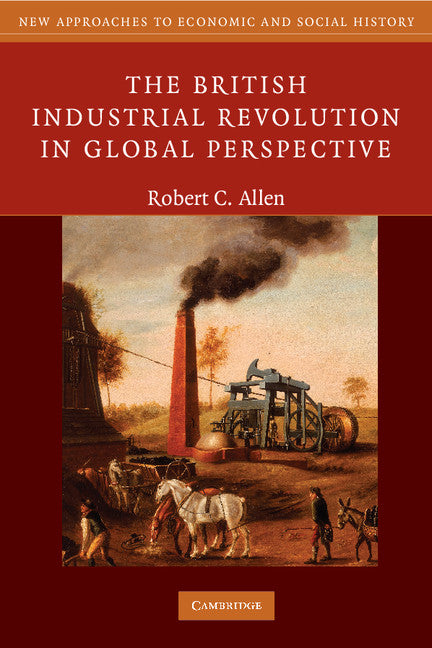Freshly Printed - allow 8 days lead
Couldn't load pickup availability
The British Industrial Revolution in Global Perspective
A major new global economic history that explains why the Industrial Revolution occurred in Britain.
Robert C. Allen (Author)
9780521687850, Cambridge University Press
Paperback, published 9 April 2009
342 pages, 10 b/w illus. 21 tables
22.7 x 15.2 x 1.7 cm, 0.55 kg
'The relationship between shari'a and politics is obviously complex. Feldman's book provides an excellent starting point for a subject notoriously difficult and little understood. Feldman gives us a good place to start from, from, for it runs counter to most Western thinking on the subject.' The European Legacy
Why did the industrial revolution take place in eighteenth-century Britain and not elsewhere in Europe or Asia? In this convincing new account Robert Allen argues that the British industrial revolution was a successful response to the global economy of the seventeenth and eighteenth centuries. He shows that in Britain wages were high and capital and energy cheap in comparison to other countries in Europe and Asia. As a result, the breakthrough technologies of the industrial revolution - the steam engine, the cotton mill, and the substitution of coal for wood in metal production - were uniquely profitable to invent and use in Britain. The high wage economy of pre-industrial Britain also fostered industrial development since more people could afford schooling and apprenticeships. It was only when British engineers made these new technologies more cost-effective during the nineteenth century that the industrial revolution would spread around the world.
1. The Industrial Revolution and the pre-industrial economy
Part I: 2. The high wage economy of pre-industrial Britain
3. The agricultural revolution
4. The cheap energy economy
5. Why England succeeded
Part II: 6. Why was the Industrial Revolution British?
7. The steam engine
8. Cotton
9. Coke smelting
10. Inventors, enlightenment, and human capital
11. From industrial revolution to modern economic growth.
Subject Areas: Economic history [KCZ], Early modern history: c 1450/1500 to c 1700 [HBLH], British & Irish history [HBJD1], General & world history [HBG]


